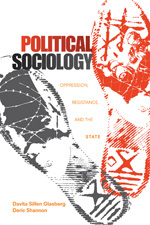(scroll down for English)
Révoltes et révolutions dans le monde arabe
Les dynamiques protestataires qui secouent le monde arabe depuis décembre 2010 invitent à poser à nouveau frais la question des phénomènes révolutionnaires, de leurs causes, dynamiques et effets à court et moyen terme. Si la littérature en sciences sociales est plutôt prolixe sur les causes et les conséquences des révoltes et révolutions, elle l’est beaucoup moins sur les processus révolutionnaires eux-mêmes. C’est à ces processus tels qu’ils s’observent aujourd’hui dans le monde arabe que l’on projette de s’intéresser, autour d’un numéro thématique qui sera proposé à la Revue française de science politique.
Les contributions doivent impérativement reposer sur du matériau de première main et sur une enquête in situ. Deux axes non exclusifs l’un de l’autre sont privilégiés. La dynamique des mobilisations, d’une part, soit les configurations dans lesquelles organisations et acteurs individuels « apprennent à être révolutionnaire », pour paraphraser Timothy Tackett ; l’historicité des situations de conflit, d’autre part, soit l’attention au niveau des champs multi organisationnels, à l’épaisseur historique des réseaux de mobilisations activés ou créés dans cette dynamique et au niveau des individus, aux formes de socialisation politique et aux transmissions intergénérationnelles.
Les propositions d’articles, d’un maximum de 70.000 signes, bibliographie/annexes comprises, doivent parvenir par courrier électronique avant le 30 novembre 2011 aux coordinateurs, Mounia Bennani Chraïbi et Olivier Fillieule. Chaque proposition doit s’accompagner d’un encadré faisant état des sources utilisées et des modes de recueil des données ainsi que d’une courte note biographique.
Les papiers en langue anglaise sont éligibles et feront l’objet d’une traduction s’ils sont retenus.
Les propositions retenues par les coordinateurs seront dans un second temps soumises à la revue pour évaluation.
mounia.bennani@unil.ch; olivier.fillieule@unil.ch
The protest dynamics that have hit the Arab world since late 2010 invite researchers to re-question revolutionary phenomena – their causes, dynamics, and effects in the short and long term. While there is a large social science literature concerning causes and consequences of revolts and revolutions, there is considerably less attention on revolutionary processes themselves. This call for papers, which will lead to a proposal for a thematic issue of the Revue française de science politique, focuses on revolutionary processes.
Contributions must use original primary empirical data and build on in situ fieldwork. Two non-exclusionary axes are privileged. The dynamics of mobilization on the one hand – that is the configurations in which organisations and individual actors learn how to « be revolutionaries », to paraphrase Timothy Tackett. On the other hand the historicity of situations of conflict, that is, an attention on multi-organisational fields, on historically situated mobilization networks activated or created in this dynamic, and on individual actors, their political socialization and intergenerational transmissions.
Article proposals of maximum 70 000 signs (references and notes included) must be sent electronically before November 30 2011 to the two coordinators, Mounia Bennani-Chraïbi and Olivier Fillieule. Each proposition must be accompanied by a short note explaining the sources and methods of data collection, as well as a short biographical notice.
Papers written in English can be proposed and will be translated into French if they are selected.
After a first evaluation by the coordinators, the retained papers will be proposed to the journal for evaluation.
Papers should be sent to mounia.bennani-at-unil.ch and olivier.fillieule-at-unil.ch

